table of contents
Smart Strategies for Lowering U.S. Payroll Expenses
Managing payroll costs is a big deal for businesses in the United States. It’s one of the biggest expenses companies faces, and cutting back without causing problems can feel like walking a tightrope. But with the right approach, it’s not just doable, it can actually help your company thrive. Here’s how you can handle payroll smartly while keeping everything running smoothly.
Understanding Payroll Costs in the United States
Payroll costs in the U.S. aren’t just about paying salaries. There’s a lot more to it, like taxes, benefits, and other mandatory contributions. Knowing what you’re dealing with is the first step to managing it better.
Labor Laws and Regulations
In the U.S., rules like the Fair Labor Standards Act (FLSA) set the minimum wage, overtime pay, and other workplace standards. States like California and New York have higher minimum wages, which can drive up payroll costs. Staying compliant is essential because mistakes can get expensive fast.
Taxes and Social Contributions
Employers have to pay federal taxes like Social Security, Medicare, and unemployment insurance. There are also state and local taxes, which vary a lot depending on where your business is located. For instance, New Jersey has higher state unemployment taxes compared to many other states.
Benefits That Add Up
Mandatory benefits like Medicare are just the start. Voluntary perks such as health insurance or retirement plans can be costly but are often key to attracting and keeping top talent. For larger companies, the Affordable Care Act requires health coverage for employees, which adds to the payroll load.
Proven Ways to Reduce Payroll Costs
There are plenty of strategies to trim payroll expenses without cutting corners on quality or compliance. Here’s what you can try.
Restructure Your Workforce
Think about how you can make your team more efficient. Use part-time workers for seasonal jobs or redistribute tasks to cut back on unnecessary roles. This keeps your costs down while meeting your business needs.
Flexible Work Arrangements
Offering remote work or flexible schedules can save you money. Employees might accept lower pay in exchange for perks like telecommuting or better work-life balance, and you’ll save on overhead like office space.
Outsource or Automate Tasks
Outsourcing payroll tasks to professionals can save you time and money. Automation tools can handle things like wage calculations, overtime tracking, and tax filings, reducing errors and cutting back on staff time.
Take Advantage of Tax Credits
The government offers tax credits like the Work Opportunity Tax Credit (WOTC), which rewards businesses for hiring certain groups like veterans. Looking into these opportunities, they can make a real difference.
Industry-Specific Tactics
Different industries handle payroll costs in their own unique ways. Let’s look at how some major sectors, including tech, manufacturing, retail, and healthcare, manage and reduce payroll expenses.
Tech Companies
Remote work has completely changed the game for tech companies. By hiring freelancers or global talent, companies can reduce payroll costs significantly while still accessing highly skilled professionals. Many tech firms also use automated project management and payroll tools to streamline operations, keeping costs low and productivity high.
Manufacturing
In the manufacturing sector, automation plays a big role in reducing payroll expenses. By investing in advanced machinery and robotics, companies can minimize their reliance on overtime labor. Smart workforce scheduling is also key. This ensures that employees are only working when there’s demand, which avoids unnecessary payroll expenses.
Retail
Retail businesses often deal with fluctuating demand, especially during holiday seasons or special sales. Many retailers rely on part-time employees and flexible scheduling to keep payroll costs in check. This approach allows businesses to scale up their workforce when needed and scale down during slower periods, optimizing labor costs.
Healthcare
The healthcare industry faces unique payroll challenges due to its round-the-clock operations and highly skilled workforce. Strategies to reduce payroll costs include:
- Flexible Staffing Models: Many hospitals and clinics use per diem staff or part-time professionals for non-emergency roles to manage costs.
- Shift Optimization: Tools like workforce management software help optimize nurse and staff schedules, reducing overtime expenses while ensuring adequate coverage.
- Outsourcing Administrative Roles: Non-clinical functions such as billing and HR are often outsourced to specialized firms, which reduces in-house payroll costs.
- Telehealth Services: With the rise of telehealth, many healthcare providers have shifted certain consultations online. This reduces the need for on-site staffing and associated payroll expenses.
Each industry has its own challenges, but these tailored strategies show that cutting payroll costs doesn’t have to compromise quality or efficiency.
Outsourcing Payroll to Save Costs
One of the easiest ways to handle payroll is to outsource it. Third-party providers specialize in managing payroll efficiently, saving you both time and money.
Why Outsourcing Works
Instead of keeping an entire department in-house, outsourcing means you’re only paying for what you need. Providers stay on top of tax rules and compliance, so you avoid penalties and costly mistakes.
Real-Life Savings
A small retail company in the Midwest saved 30% on payroll costs by outsourcing. They avoided fines, freed up time, and put their focus back on growing the business.
Optimize Payroll with Vurke
Vurke provides outsourced payroll management services that help businesses save time and reduce costs. While payroll is one of its key offerings, Vurke’s capabilities go beyond payroll management, encompassing compliance, workforce solutions, and operational support. By outsourcing payroll tasks to Vurke, businesses can ensure accuracy, streamline processes, and stay compliant with local regulations—all while focusing on their core operations.
How Vurke Helps
Vurke makes payroll seamless by centralizing everything. It handles compliance, which means fewer headaches for you and your team.
Success Stories
A global tech firm cut its payroll processing time in half using Vurke. They didn’t just save time; they saved money and used those resources to grow their business.
Legal Considerations for Payroll Adjustments
When cutting costs, you must follow the law. Messing this up can lead to fines or lawsuits, so it’s better to be safe than sorry.
Wage Laws
You can’t just lower salaries or cut hours without following the rules. Federal and state laws are strict, so double-check everything before making changes.
Termination Rules
Letting people go to save costs? Be sure to follow proper procedures, like giving enough notice and offering severance if required.
Compliance Audits
Regular audits help you spot mistakes before they become expensive problems. Keep records organized and stay up to date with labor laws.
Summary
Cutting payroll costs doesn’t mean cutting corners. By being smart about your workforce, outsourcing when it makes sense, and with Vurke, you can save money without losing quality. Just remember to stay compliant with laws and keep your employees in the loop.
FAQs
How can outsourcing payroll save money?
Outsourcing reduces the need for in-house staff and ensures compliance, saving time and avoiding penalties.
What are flexible work options for reducing payroll costs?
Remote work and part-time schedules lower overhead and can reduce overall salary expenses.
Why is compliance important in payroll?
Staying compliant avoids fines, legal issues, and unnecessary expenses from errors.
What are some effective ways to lower payroll costs in the U.S.?
Use strategies like hiring part-time workers, offering remote work options, automating payroll tasks, and outsourcing non-core roles to save money.
What legal issues should businesses watch for when reducing payroll expenses?
Cutting wages, adjusting hours, or downsizing must comply with federal and state labor laws to avoid penalties or lawsuits. Clear communication and proper documentation are key.
How does outsourcing payroll save money for companies?
Outsourcing reduces the need for in-house payroll staff, ensures compliance with complex tax laws, and minimizes errors, saving both time and money.



